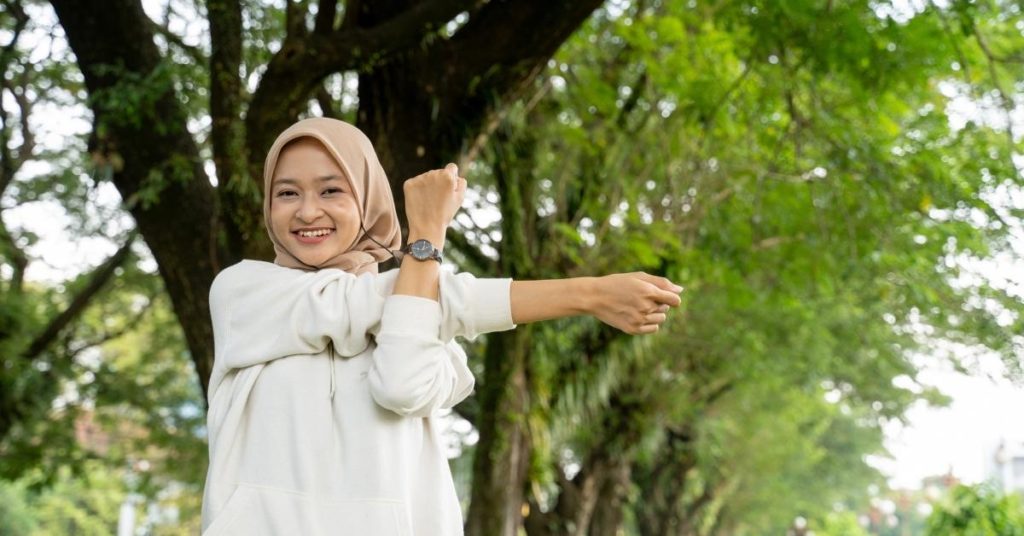Working out while fasting for Ramadan: Salwa Qadir

How did you get involved in the fitness/health & wellness sector and why?
As a young girl growing up in Pakistan, I lived an extremely sedentary life. When I came to Canada and entered university, I had the opportunity to pursue activities I couldn’t as a child. I loved music and dance so I decided to pursue belly dance because I enjoyed the music and it’s a dance that can be learnt at any age, any skill level, any body type and one that didn’t require a partner.
I went through different dance schools and by the time I was in my mid-20s I ended up at the Arabesque Dance Academy. Over there the creative director told me that if I wanted to improve as a dancer, I needed to get stronger in my arms and legs, so she encouraged me to lift weights. And that’s when everything started changing.
I shifted my focus from “I need to lose weight” to “I need to get stronger” and that’s how I became a dedicated exerciser. I was enjoying seeing the improvements in my strength and because of that I began enjoying the process of working out and lifting weights.
I absolutely love the way the human body moves, and I love how small changes can have a huge impact. The greatest joy of my work is seeing improvements in my clients, whether it be strength gains, body changes or an improvement in their daily function.
As a Personal Trainer for women who has a special focus on how to coach clients through training while fasting, what is one of the biggest misconceptions when it comes to the relationship between fitness and Ramadan?
Many people think that fitness or workouts can’t be maintained during fasting, but they can be. In the month of Ramadan the Muslim belief is that it is a month to build beneficial habits and the month to break non-beneficial habits. So if we stop a beneficial habit during this month, we’re in essence breaking a habit that benefits our body and minds. Our bodies are the machines that take us through the month of Ramadan, so taking care of it is just as important as taking care of our souls.
What is the most common question you get from your clients?
- Do you work out while fasting?
- And how do you workout while fasting?
The key to keeping up with working out while fasting is to ensure you are eating enough nutritious meals and drinking enough water during the eating and drinking window.
When is the best time to work out and how many times a week would you recommend?
The best time to work out is one that best fits your schedule and your lifestyle.
For example, if you’re a night owl during Ramadan and feel like your energy peaks in the evening, and you have the time to work out while maintaining other evening commitments that the month of Ramadan requires, schedule your workout for after Iftaar or any time during the eating/drinking window.
In my experience, clients prefer working out about an hour prior to opening their fasts or in the afternoon – but this is very dependent on each person’s lifestyle and their level of commitment to the month of Ramadan.
My preference for my own workouts is early to midafternoon.
What is the best way for clients to maintain energy and endurance while fasting?
The best way to maintain energy and endurance is to make sure clients are disciplined during the eating and drinking window and build healthy habits BEFORE the start of Ramadan. Ensure they are meeting maintenance calories with a focus on protein and drinking enough water daily. Naps are also equally as important.
What would you say to clients who are worried about losing their progress during Ramadan and fasting?
For those worried about losing progress, keep the goal for Ramadan to stay at maintenance, no more and no less. As long as you’re getting the minimum dosage of exercise needed to maintain your goals, and keeping up with the habit of working out, you won’t lose progress.
What types of foods would you recommend consuming during Iftar and how do you prevent from over-eating?
While every person is different, balanced and nutrient-dense meals are generally a great way to open your fast to prevent that post Iftaar crash and overeating. Open your fast with the tradition of a date (don’t overeat!), but ensure you are also getting enough protein and vegetables with your meal.
What are your personal favourite quick tips that you use?
I always keep my water bottle with me to ensure I’m getting enough water during the eating and drinking window, even when I go to the mosque.
A strange fact about me: I don’t eat eggs for suhoor/sehri because it always makes me thirsty while I’m fasting! Instead, I choose to incorporate a tablespoon of a healthy fat like a nut butter or chia seeds to help me stay hydrated and keep my fast comfortable.

